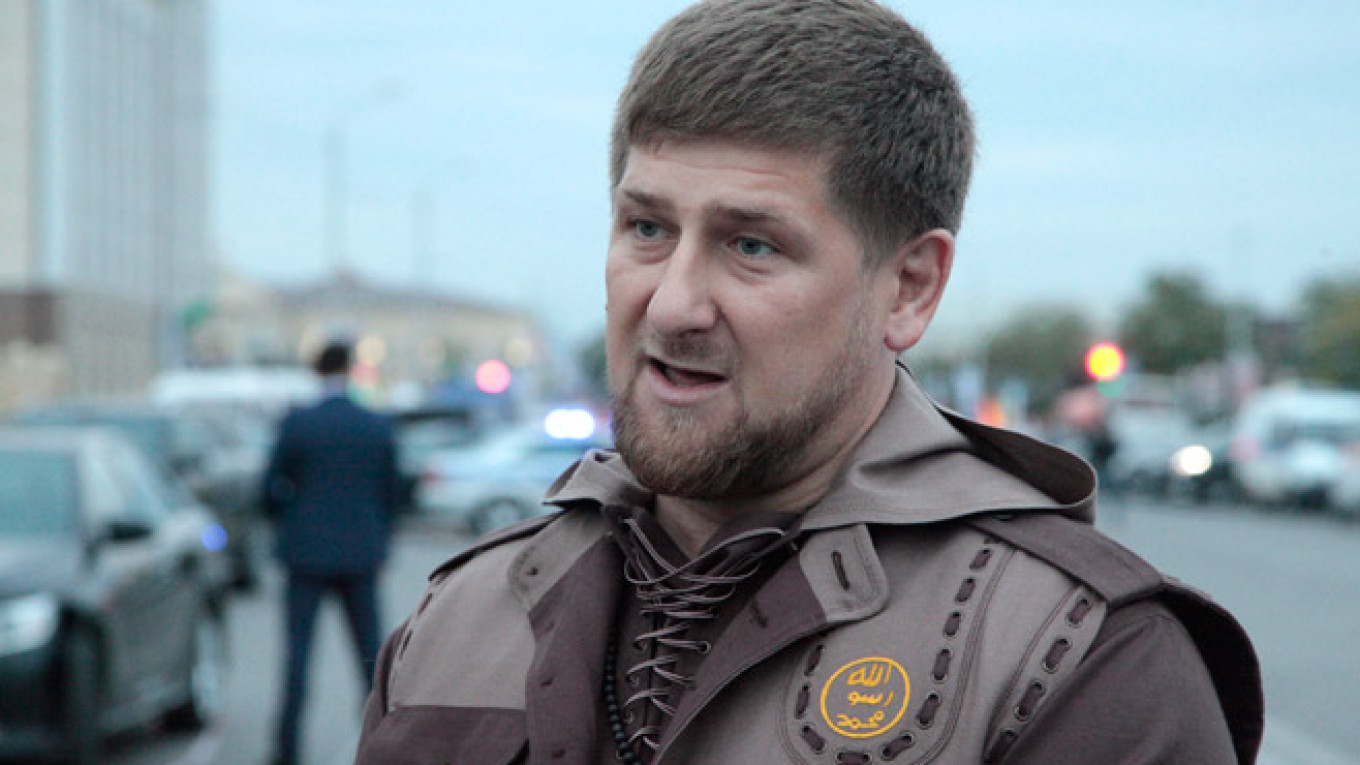In the wake of Sunday's suicide bombing in Grozny, as Chechen leader Ramzan Kadyrov called the attacker "illegitimate scum" and vowed revenge, there was no official word on who was behind the attack — but there seemed to be plenty of spin by all sides.
Kadyrov described the suicide bomber as a lone wolf, saying "the bastard did not represent anybody," apparently trying to pre-empt any speculation of involvement by the extremist groups Caucasus Emirate or the Islamic State.
"We will seek out these enemies of Islam everywhere, constantly, and we will not allow their souls in Chechnya. Those who aided in the killing of these officers have a harsh punishment coming to them. No one should have any doubt about that. We paid a high price for peace in Chechnya, and we won't let illegitimate scum shatter that," Kadyrov wrote Monday on Instagram, his preferred mass-communication platform.
Similarly, investigators stopped short of classifying the attack as terrorism. In addition to posthumously facing charges of attempting to kill police officers, the suspect — identified as 19-year-old Grozny native Opti Mudarov — was charged with illegal weapons possession. Russian legislation provides that defendants can face criminal justice from beyond the grave.
The closest thing to a direct claim of responsibility for the bombing came shortly after the attack from a VKontakte account affiliated with an extremist group in Syria comprised mainly of Chechen fighters: Jaish al-Muhajireen wal-Ansar. However, it could not be independently verified whether the group JAMWA was actually involved in Sunday's bombing or just using the attack in a bid to boost its own reputation.
By Monday, that account, along with dozens of other social media accounts associated with members and supporters of extremist groups, had been deleted.
The account linked to JAMWA— a group blacklisted by the U.S., fighting in Syria, and led by Chechens — taunted Kadyrov with what read like a claim of responsibility: "A gift to Ramzan Kadyrov for City Day from the leadership of the Caucasus Emirate, we thank you for such a well-built city."
Kadyrov's name was intentionally misspelled in the original message to read "Kafyrov" — a pun on the Arabic slur "kafir," for "infidel."
The group, better known as "The Army of Immigrants" for its composition predominantly of foreign fighters, operates exclusively on Syrian soil, but reportedly has ties to the Caucasus Emirate, and one of its commanders happens to be a Crimean Tatar, Abdul Karim Krymsky.
Another one of the group's leaders, Chechen native Emir Salauddin, previously served as a representative for the Caucasus Emirate in Syria, according to the Jamestown Foundation.
Krymsky, the group's deputy commander, has previously called on Muslims living in Russia to carry out attacks. He published a video message in May in which he called Russia's annexation of Crimea a "humiliation" for Muslims and urged Crimean Tatars to wage jihad inside Russia if they could not make it to Syria.
Kavkaz Center, an online news site linked to the Caucasus Emirate, praised the attack as a "martyr bombing," but otherwise provided no details on who was behind it.
Contact the author at a.quinn@imedia.ru
A Message from The Moscow Times:
Dear readers,
We are facing unprecedented challenges. Russia's Prosecutor General's Office has designated The Moscow Times as an "undesirable" organization, criminalizing our work and putting our staff at risk of prosecution. This follows our earlier unjust labeling as a "foreign agent."
These actions are direct attempts to silence independent journalism in Russia. The authorities claim our work "discredits the decisions of the Russian leadership." We see things differently: we strive to provide accurate, unbiased reporting on Russia.
We, the journalists of The Moscow Times, refuse to be silenced. But to continue our work, we need your help.
Your support, no matter how small, makes a world of difference. If you can, please support us monthly starting from just $2. It's quick to set up, and every contribution makes a significant impact.
By supporting The Moscow Times, you're defending open, independent journalism in the face of repression. Thank you for standing with us.
Remind me later.


